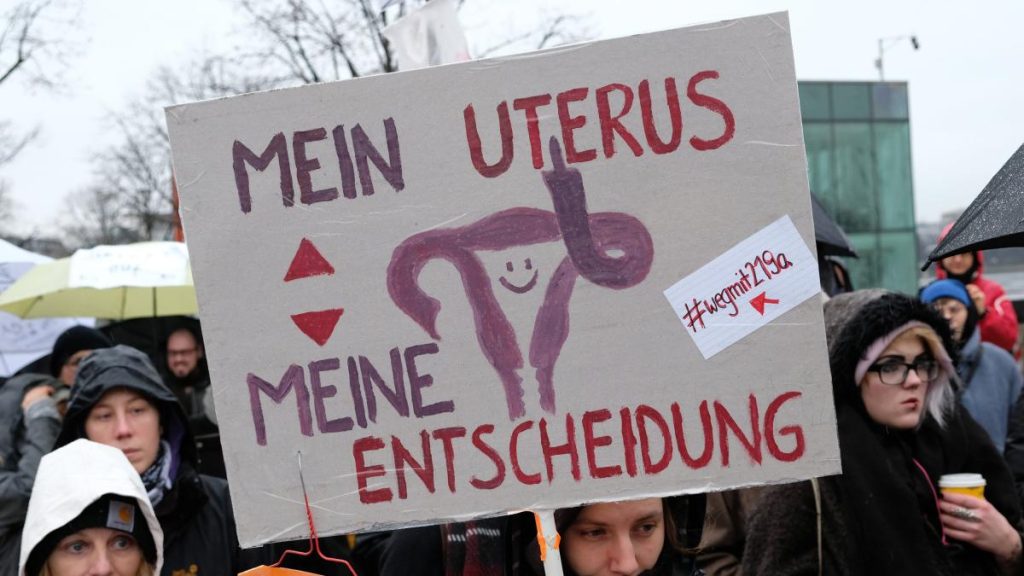Debates surrounding the legality of abortions in Germany have intensified as a special expert commission has recommended that abortions should not be considered a criminal offense in the early stages of pregnancy. The commission, appointed by the federal government, believes that the decision to terminate a pregnancy should be left to the woman’s discretion in the early stages. Although abortions are technically allowed within the first twelve weeks under certain circumstances such as medical reasons or in cases of rape, they are currently governed by exceptions in the criminal code. The commission was also tasked with examining the legalization of egg donation and surrogacy.
The coordinator of the commission, Liane Wörner, emphasized that the current classification of abortion as illegal in the early stages of pregnancy is not sustainable and called for legislative action to decriminalize and legalize abortions. While abortions are currently exempt from punishment under specific conditions, they are still considered unlawful, which has implications for the obligations of public health insurance. The deputy coordinator, Frauke Brosius-Gersdorf, highlighted the importance of changing the perception of abortion from being seen as a transgression to a legally permissible act, as it significantly affects the women involved.
A majority of the population seems to support the idea of legalizing abortions within the first twelve weeks of pregnancy, according to a survey conducted by the Forsa institute for RTL/ntv’s “Trendbarometer.” The survey revealed that 72% of respondents believe that abortion should be unrestricted during this initial period. Support for this legalization was strongest among Green party supporters at 82%, while it was lowest among AfD supporters at 55%. Concerns about a potential increase in the number of abortions if unrestricted were expressed by 33% of respondents, but 62% did not believe this would be the case.
The commission also discussed the possibility of legalizing egg donation in Germany, highlighting the importance of establishing a legal framework to protect the donors and ensure the well-being of the child. Currently, Germany, along with Luxembourg, is one of the only EU countries where egg donation is prohibited. The commission stressed the need to uphold the child’s right to know their origins, as is practiced in sperm donation cases. Regarding surrogacy, the commission suggested that under certain conditions, such as ensuring the safety and well-being of the surrogate mother and the child, lawmakers could consider allowing it.
Overall, the debate surrounding abortion laws in Germany has reignited discussions about women’s reproductive rights and autonomy. With a growing consensus among the public in favor of decriminalizing abortions in the early stages of pregnancy, the government may face increasing pressure to reform existing laws. The recommendations put forth by the expert commission highlight the need for a more compassionate and rights-based approach to reproductive health issues, including the legalization of abortion, egg donation, and surrogacy under specific legal safeguards to protect all parties involved.


